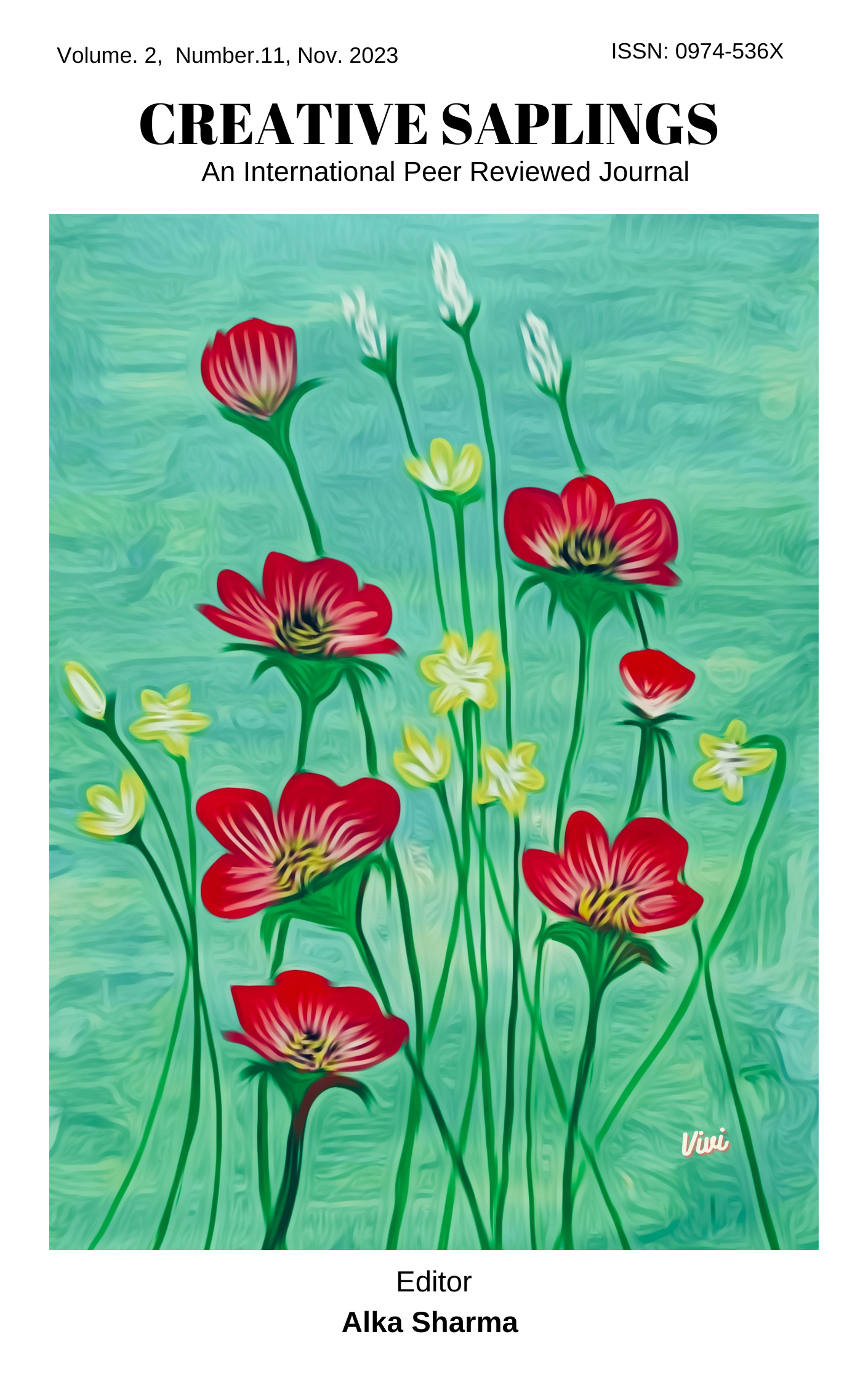Introspecting The Life of Tribal Women in Mahasweta Devi’s Rudali and The Hunt
DOI:
https://doi.org/10.56062/gtrs.2023.2.08.446%20Keywords:
Distinguished, Upliftment, Tribal, Iconoclast, Quest, Individual, Atrocities, Representative, Identity.Abstract
ABSTRACT
Mahasweta Devi is a distinguished Indian writer and an esteemed activist who worked hard to uplift the tribal communities. She has a deep knowledge of the socio-political condition of India. She is an iconoclast who, in her works focussed on the miserable condition of depressed and neglected classes and tribes. Her different stories and novels shower light on the day to day happenings in the interiors of our nation. She has also talked about the quest for equal rights for each and every individual, especially for females in terms of education, health facilities, employment opportunities and social well-being. The present paper discusses “’Rudali’ and ‘The Hunt’” in the light of atrocities done to the women in their tribes and the racist response given to them. Mahasweta Devi has portrayed the protagonists Sanichari and Mary Oraon, as the representatives of modern women searching for their own identity in the modern society. She presents the pitiable and pathetic condition of tribal women with their sorrows and sufferings and, more importantly, their infuriated inner self, which worked constructively to bring them to the level of mainstream individuals by injecting the sense of respect and appreciation for them.
Downloads
References
Spivak, Gayatri Chakarborty. Trans. “Breast stories”. By Mahasweta Devi. Calcutta: Seagull Books, 1977.
Desai Dhruv. “Sexual Harassment and Rape Laws in India,” www.legal service India.com.
Agarwal, Beena. “Indian women Novelists: Shifting Modes of Paradigms and Paradoxes”, Indian Women Writing in English. Jaipur: Mark Publishers, 2011.
Devi, Mahasweta. “Mahasweta Devi on Tribal Welfare: a video interview”. 8th july 1998. Calcutta.
Devi, Mahasweta. “Imaginary Maps”. Trans. Gayatri Chakravorty Spivak, Kolkata, Thema, 2022.
Chakravarty, Radha. "Mahasweta Devi: A Luminous Anger" in Feminism and Contemporary Women Writers: Rethinking Subjectivity. New Delhi: Routledge, 2008.
Barry, Peter. “Beginning Theory: An Introduction to Literary and Cultural Theory”. U.K: Manchester University Press, 2012
Ghatak, Maitreya(ed.). “Dust on the Road : The Activist Writings of Mahasweta Devi”. Calcutta: Seagull, 2000
Satyanarayan, E. “The plays of Mahasweta Devi”. New Delhi: Prestige Books, 2000
Shiva, Vandana. “Staying Alive: Women, Ecology and Development in India”. New Delhi: Kali for Women, 1995
Uma, Devi, K. “Tribal Right in India”. New Delhi: Serials, 2006.
D.,Shalini and Alamelu C. “Cultural Studies in Rudali-A Perspective of Mahasweta Devi”. International journal of advanced research. (ISSN 2320-5407). www.journalijar.com, March 2022.
file:///C:/Users/John/Downloads/Econtent_Pdf_thehuntbymahaswetadeviBAsem5paper2_81234.pdf
Chakravarty, Radha “ed”. “Writer In Context Mahasweta Devi Writer, Artist, Visionary”. Routledge Taylor & Francis Group. London and New York,2023.
Debnath, Partha. “A Study of Female Body as an Object of Patriarchal Gaze and Resistance to it in Mahasweta Devi’s Breast Stories”. International Journal of Multidisciplinary Educational Research, ISSN:2277-7881, Volume:10, Issue:7(1), July: 2021
Rai, Indrani. “Women of Mahasweta Devi: Walking through Fire?”. International Journal of Advanced Research. 2016.
Multani, Navleen. “Poetics and Politics of Marginality in Mahasweta Devi's Breast Stories”.2020https://www.researchgate.net/publication/343054147_Poetics_and_Politics_ of_Marginality_in_Mahasweta_Devi%27s_Breast_Stories.
Downloads
Published
Issue
Section
License
Copyright (c) 2023 Shubhi Bhasin, Pallavi Srivastava

This work is licensed under a Creative Commons Attribution-NonCommercial 4.0 International License.





